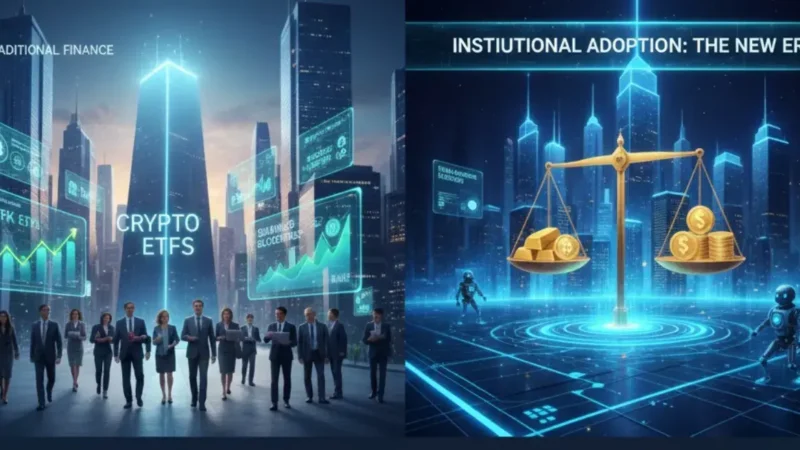SWIFT’s Innovation Chief Applauds GBBC’s Blockchain Risk Management Framework, Highlighting Ripple’s Role

In a notable endorsement signaling the increasing convergence of traditional finance and blockchain technology, Tom Zschach, Chief Innovation Officer at SWIFT, has publicly praised the GBBC initiative (Global Blockchain Business Council) and leading global management consulting firm Oliver Wyman for their collaborative efforts in developing a Risk Management Framework (RMF) tailored for the institutional adoption of public blockchains. Zschach’s commendation underscores the significance of this GBBC initiative in providing regulated financial institutions with the necessary tools to navigate the non-financial risks associated with integrating public blockchain technologies, including prominent platforms like Ripple.
This recent expression of support from a key figure within SWIFT, a critical infrastructure provider for global interbank payments, marks a discernible shift from previously cautious remarks regarding the widespread use of public blockchains in regulated environments. Zschach’s acknowledgement of the “commendable work” undertaken by the GBBC and Oliver Wyman highlights a growing recognition within traditional financial infrastructure of the potential benefits and the increasing maturity of blockchain technology for institutional applications. The development of a robust RMF is seen as a crucial step in bridging the gap between the innovative capabilities of public blockchains and the stringent regulatory requirements of the financial services industry.
The GBBC Initiative’s Risk Management Framework: A Closer Look
At the heart of Zschach’s praise is the first draft of the RMF developed under the GBBC initiative. This framework is specifically designed to assist regulated financial institutions in systematically assessing and managing the multifaceted non-financial risks inherent in utilizing public blockchains. These risks extend beyond traditional financial risks and encompass areas such as operational resilience, cybersecurity, data privacy, compliance with anti-money laundering (AML) and counter-terrorist financing (CFT) regulations, and the governance of decentralized networks.
The RMF acknowledges the unique characteristics of public blockchains, including their decentralized nature, immutability of records, and reliance on cryptographic protocols. It provides a structured approach for institutions to identify, evaluate, and mitigate potential risks associated with these features. By offering a standardized framework, the GBBC initiative aims to foster greater confidence and facilitate the responsible adoption of blockchain technology within the regulated financial sector.
The involvement of major industry players, including Ripple, Hedera, and Cardano, in the GBBC initiative and the development of the RMF is particularly noteworthy. These platforms represent diverse approaches within the public blockchain space, and their participation ensures that the framework addresses a broad spectrum of technological considerations and potential risk vectors. This collaborative effort lends significant credibility to the RMF and increases its relevance for financial institutions exploring various blockchain solutions.
Zschach’s Endorsement: A Sign of Shifting Perspectives
Tom Zschach’s recent support for the GBBC initiative is particularly significant given his position as Chief Innovation Officer at SWIFT. SWIFT plays a vital role in the global financial system, facilitating trillions of dollars in cross-border payments daily. Historically, the organization has approached public blockchains with a degree of caution, focusing on the potential risks and regulatory uncertainties.
Zschach’s praise can be interpreted as a sign of evolving perspectives within traditional financial infrastructure. It suggests a growing recognition that public blockchains, when implemented responsibly and within a well-defined risk management framework, can offer tangible benefits in terms of efficiency, transparency, and the potential for new financial services. His emphasis on the involvement of industry leaders like Ripple further underscores the increasing maturity and institutional relevance of these technologies.
This endorsement could have a ripple effect across the financial industry, encouraging more institutions to actively explore and engage with public blockchain solutions. The availability of a comprehensive RMF, backed by industry bodies like the GBBC and acknowledged by influential figures like Zschach, can help to alleviate concerns and provide a roadmap for compliant and secure adoption.
Implications for Institutional Blockchain Adoption
The development and promotion of the RMF under the GBBC initiative, coupled with SWIFT’s positive acknowledgment, hold significant implications for the future of institutional blockchain adoption. Firstly, it provides a much-needed framework for regulated entities to navigate the complexities of public blockchain technology. This can lower the barrier to entry for institutions that have been hesitant due to risk and compliance concerns.
Secondly, the involvement of platforms like Ripple, Hedera, and Cardano signals a move towards greater interoperability and collaboration within the blockchain space. As institutions explore different blockchain solutions for various use cases, the ability to assess and manage risks across these platforms becomes increasingly important. The GBBC initiative is playing a crucial role in fostering this understanding and promoting best practices.
Stay informed, read the latest crypto news in real time!
Finally, the support from a key player like SWIFT indicates a growing convergence between traditional and decentralized financial systems. While the full integration of public blockchains into mainstream finance is still a journey, initiatives like the GBBC’s RMF and endorsements from industry leaders like Zschach represent significant steps forward in building trust and facilitating responsible innovation. The GBBC initiative’s work is crucial for paving the way for a more efficient, transparent, and inclusive global financial landscape.




